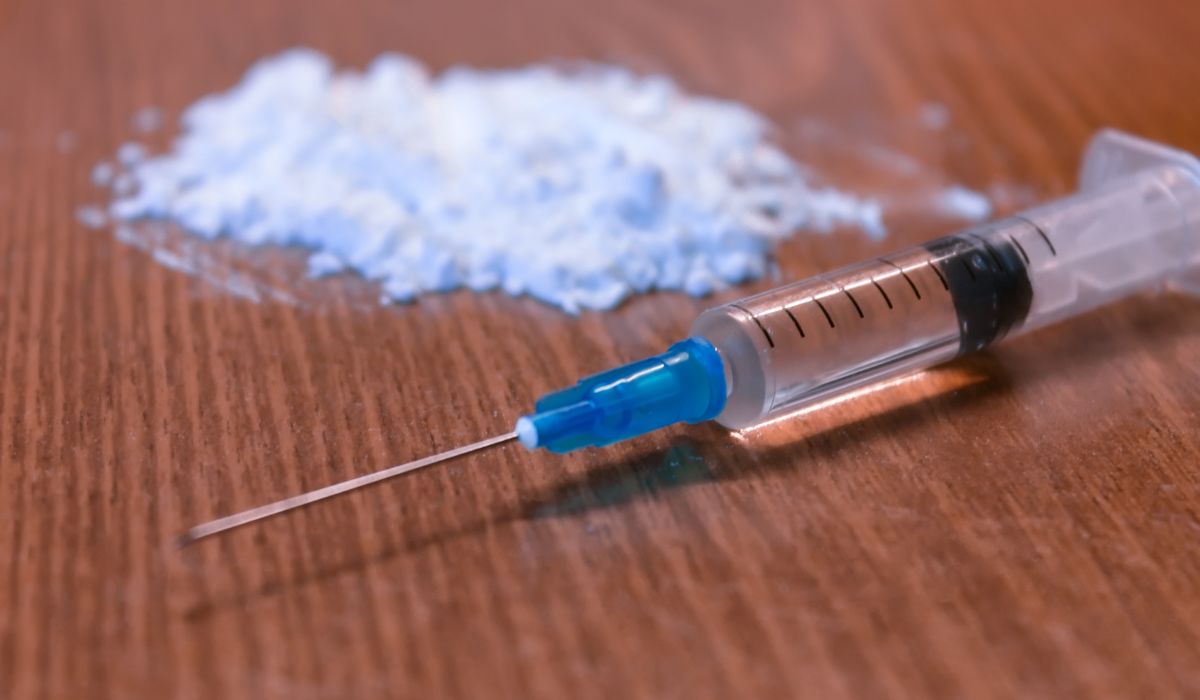Does Ketamine Show Up on a Drug Test?
Ketamine is a powerful medicine that can act as an anesthetic and has been studied for treating depression and other mental health issues. It is also sometimes misused as a club drug. Because of this, many people wonder: does ketamine show up on a drug test? Knowing the answer is important for health, safety, and recovery.
Lynk Diagnostics, a trusted drug testing center dedicated to rehab facilities, helps patients, families, and providers understand how drug testing works and what substances may be detected. Clinically Reviewed by Lynk Diagnostics
What Is Ketamine?
Ketamine is a dissociative anesthetic. Doctors use it in hospitals and clinics to help patients with pain relief or sedation. It can make people feel detached from reality, sometimes called an “out-of-body” experience.
Outside of medical use, ketamine is sometimes taken illegally because of its hallucinogenic effects. This can lead to health risks, dependence, and substance abuse problems.
Why Would Ketamine Be Tested?
Employers, rehab facilities, and healthcare providers may want to know if someone has used ketamine. Reasons include:
- Workplace safety – Many jobs require clear thinking and focus.
- Rehab treatment – Patients in recovery may be tested to ensure they are drug-free.
- Legal or court cases – Drug testing may be ordered to confirm if a person has used certain drugs.
Does Ketamine Show Up on a Drug Test?
Yes, ketamine can show up on a drug test. However, not all standard tests look for it.
Most basic drug tests (like 5-panel urine screens) check for common drugs such as:
- Marijuana (THC)
- Cocaine
- Amphetamines
- Opiates
- Phencyclidine (PCP)
Ketamine is not always included in these standard panels. But more advanced tests—like a 10-panel drug test or special lab tests—can detect it.
What Types of Drug Tests Detect Ketamine?
Different types of drug tests can be used to detect ketamine:
Urine Tests
- Most common method.
- Can detect ketamine for up to 14 days after use, depending on dose and frequency.
Blood Tests
- Used less often.
- Detects ketamine for about 24 hours after use.
Hair Tests
- Can show ketamine use for up to 90 days.
- Not as common but useful in long-term investigations.
Saliva Tests
- Detects ketamine for a shorter time, usually 24–48 hours.
How Long Does Ketamine Stay in the Body?
How long ketamine is detectable depends on several factors:
- Dose taken – Larger amounts may stay longer.
- Frequency of use – Regular use makes it easier to detect.
- Metabolism – Some people’s bodies process drugs faster.
- Age, weight, and health – Can affect how the body breaks down ketamine.
On average:
- Urine: up to 14 days
- Blood: up to 24 hours
- Saliva: 24–48 hours
- Hair: up to 90 days
Ketamine and Rehab Testing
For patients in rehab programs, testing for ketamine use may be part of recovery care. Rehab centers often rely on professional labs like Lynk Diagnostics to provide accurate, trusted results. This helps patients stay accountable and supports long-term sobriety.
Risks of Ketamine Misuse
While ketamine has medical uses, misuse can be dangerous. Risks include:
- Memory problems
- High blood pressure
- Bladder and kidney damage
- Addiction and dependence
- Accidents due to impaired judgment
Because of these risks, accurate drug testing is important for health and safety.
Workplace and Legal Implications
Ketamine use can affect a person’s job or legal status. If an employer or court requires a drug test, ketamine may be included in advanced testing panels. A positive test could lead to:
- Loss of job or suspension
- Legal consequences
- Required rehab or counseling
This is why it’s important to understand how testing works and seek help if struggling with substance use.
Can Ketamine Use Be Detected in Rehab Patients?
Yes, especially when rehab centers use advanced drug panels. Lynk Diagnostics works with rehab facilities to detect substances like ketamine, opioids, benzodiazepines, amphetamines, and more. This helps ensure patients receive the right care.
Accuracy of Ketamine Drug Tests
Drug testing for ketamine is accurate when performed in a certified lab. Tests may use methods like:
- Immunoassay screens – Quick but sometimes need confirmation.
- Gas chromatography/mass spectrometry (GC/MS) – Highly accurate and used to confirm results.
Labs like Lynk Diagnostics use advanced testing methods to ensure reliable results.
How Lynk Diagnostics Supports Recovery
Lynk Diagnostics partners with rehab facilities to provide accurate and timely results for drug tests. By focusing on patient safety, accountability, and care, they help support recovery journeys and create trust for families and providers.
FAQs About Ketamine and Drug Testing
Does ketamine show up on a standard 5-panel drug test?
No, most standard 5-panel tests do not include ketamine. However, expanded panels or specialized tests can detect it.
How long can ketamine be detected in urine?
Ketamine can usually be detected in urine for up to 14 days after use, depending on the amount taken and how often it was used.
Can ketamine use be detected in hair tests?
Yes, hair follicle tests can detect ketamine for up to 90 days after use, making them useful for long-term tracking.
Will medical use of ketamine show up on a drug test?
Yes, medical use can show up just like recreational use. If prescribed, it’s important to share this with the testing provider.
Can Lynk Diagnostics test for ketamine?
Yes, Lynk Diagnostics provides advanced drug testing panels that include ketamine and other substances, supporting rehab centers and patients in recovery.
Final Thoughts
So, does ketamine show up on a drug test? Yes, it can. While not always found on basic tests, advanced testing methods like urine, blood, saliva, and hair screens can detect it. For patients in recovery, rehab centers and testing labs like Lynk Diagnostics play a key role in ensuring accurate results, promoting safety, and supporting long-term health.
Understanding drug testing and substance detection is not just about results—it’s about protecting lives, encouraging recovery, and building a stronger path toward wellness.








